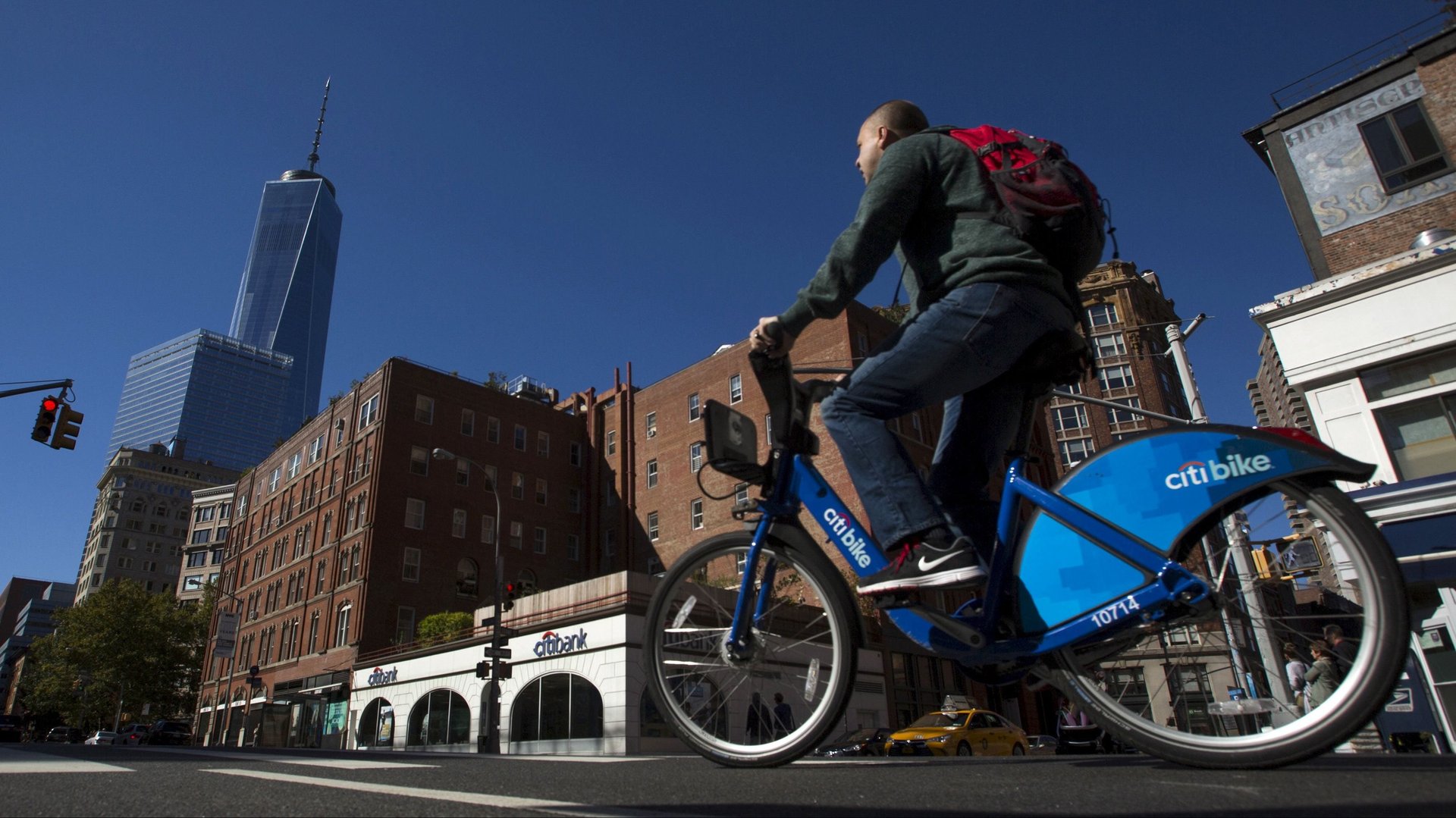Lyft is buying legitimacy through its deal with Motivate
Lyft is moving beyond car rides with a deal to buy Motivate, one of the largest operators of bike-sharing programs in the US, the companies said today. The deal price wasn’t disclosed, though it was previously rumored to be worth around $250 million (metered paywall).


Lyft is moving beyond car rides with a deal to buy Motivate, one of the largest operators of bike-sharing programs in the US, the companies said today. The deal price wasn’t disclosed, though it was previously rumored to be worth around $250 million (metered paywall).
Motivate is the company behind many of the most popular urban bike-share programs in the US, such as Citi Bike in New York, Ford GoBike in San Francisco, Blue Bikes in Boston, and Capital Bikeshare in Washington DC. The company claims that in 2017, 80% of bike-share trips in the US were taken on systems it operated.
The deal comes three months after Uber bought Jump Bikes, a startup that rents out electric “dockless” bikes in about half a dozen US cities. Dockless bikes can be found and unlocked via a mobile app, and then deposited anywhere after a trip. Jump was Uber’s first acquisition under chief executive Dara Khosrowshahi.
Ride-hailing companies are increasingly looking beyond cars as they compete to be the dominant transportation providers of the future. Uber’s ambitions include flying taxis and driverless ride-hailing cars as well as a rental car service, dockless bikes, and electric scooters. At a June panel in New York, Jump CEO Ryan Rzepecki said Uber’s team liked Jump’s bikes so much after testing them out that one employee declared, “Fuck flying cars, this is the future.” Also in June, Uber was said to be weighing a takeover offer for Motivate.
While Motivate is the clear leader in US bike-share services, recent momentum has favored startups that offer dockless bikes. Venture capitalists have put more than $2.5 billion behind dockess bike-share companies, with Chinese companies Ofo and Mobike leading the group.
Motivate, on the other hand, largely offers docked systems, where riders can unlock a bike from a set grid of stations located throughout a city. (It is piloting dockless bikes in Minneapolis through Nice Ride.) In other words, Lyft is essentially buying Motivate’s infrastructure as well as the legitimacy of its established operating arrangements with cities. Dockless bike share startups have so far proven more controversial in cities—partly because people park them on sidewalks and throw them into rivers—and are still trying to figure those relationships out.
While Lyft will now own the infrastructure, Motivate said it will retain ownership of its operations business, which includes servicing, repairing, and “rebalancing” bikes—the term used for redistributing bikes from docks that are full at the end of the day to those that are empty. The company will contract with Lyft to offer these operational services for its newly acquired bike fleets.